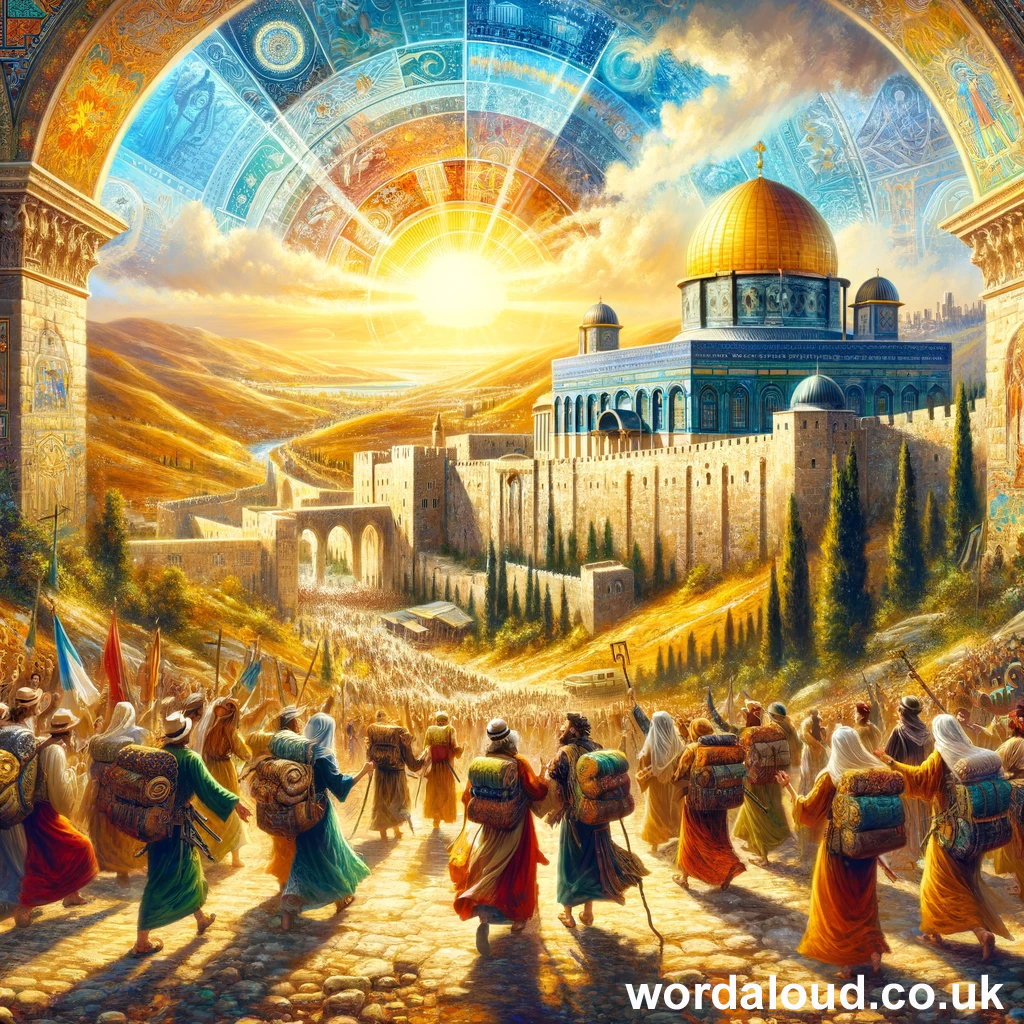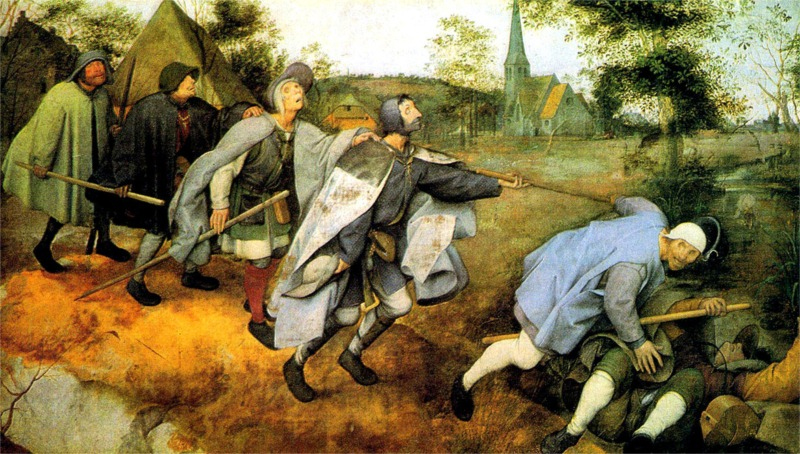Christian Art | Easter To Pentecost
John 16: 20-22 | King James Audio Bible | Daily Verses
20 Verily, verily, I say unto you, That ye shall weep and lament, but the world shall rejoice: and ye shall be sorrowful, but your sorrow shall be turned into joy.
21 A woman when she is in travail hath sorrow, because her hour is come: but as soon as she is delivered of the child, she remembereth no more the anguish, for joy that a man is born into the world.
22 And ye now therefore have sorrow: but I will see you again, and your heart shall rejoice, and your joy no man taketh from you.
In the Old Testament of the Bible, the image of a woman giving birth is often used to express great pain. It is also often used, especially by the prophets, to signify the birth of the new messianic people – see, for example, Isaiah. Jesus recalls both the pain of the Old Testament and the hope and fulfilment expressed through the prophets. The new birth is imminent. Through the sorrow and pain of the crucifixion, we are called to God.
Jesus, then, in these verses, uses both a familiar, everyday analogy to help the disciples understand what is happening, and draws on the language and understandings of the Old Testament to show how he is the fulfilment of the prophecies.
Jesus reassures his disciples, and his message of reassurance is also for us. Inevitably, there are times when we sorrow in this life. We know, however, that Christ is with us. And we will see Christ fully when we pass from this life, and that joy will have no end.
‘12 Therefore, brethren, we are debtors, not to the flesh, to live after the flesh.
13 For if ye live after the flesh, ye shall die: but if ye through the Spirit do mortify the deeds of the body, ye shall live.
14 For as many as are led by the Spirit of God, they are the sons of God.
15 For ye have not received the spirit of bondage again to fear; but ye have received the Spirit of adoption, whereby we cry, Abba, Father.
16 The Spirit itself beareth witness with our spirit, that we are the children of God:
17 And if children, then heirs; heirs of God, and joint-heirs with Christ; if so be that we suffer with him, that we may be also glorified together.
18 For I reckon that the sufferings of this present time are not worthy to be compared with the glory which shall be revealed in us.
19 For the earnest expectation of the creature waiteth for the manifestation of the sons of God.’ St Paul’s Letter to the Romans

![]()
King James Audio Bible | Endnotes
Verily Verily | The King James Version As Masterpiece In English
Jesus uses the analogy of a woman in labour to illustrate the pain that his disciples will feel at his departure, but also the joy that will come when they are reunited with him.
The English of the King James Version rises to the challenge of Jesus’ mastery of story-telling. The KJV is often praised for its poetic beauty and use of slightly for the times archaic English – drawing upon previous English translations of the Bible as well as a rich English literature tradition including William Shakespeare. Those who translated the KJV certainly intended to create a literary masterpiece as well as an accurate translation of original texts.
Many have praised the KJV Bible. Here is a selection of what has been said:
Samuel Taylor Coleridge wrote:
‘The language of the Bible has no less impressed and stamped its character on the Saxon dialects, than the Latin has on the Southern tongues of Europe. And I am not sure, whether, taking all the circumstances together, it is not the grandest style that has ever been written,–the sublimest, perhaps, of human composition.’
C.S. Lewis wrote:
‘The English Bible, as [William] Tyndale translated it and as revised by the scholars of 1611, has nourished a language which, for beauty and richness, is probably unequalled in the world.’
John Milton wrote:
‘The King James Bible is the best English version of the best book, and its poetic and rhythmic qualities are now well known. Its language is plain, majestic, and powerful, and it has influenced our language and literature more than any other book in the world.’
Harold Bloom wrote:
‘The King James Version is our language’s high point, a culmination of sorts that we can identify as mystical. It has given us not only the language of our faith but also a language that is singular in its beauty, rhythm, and poetic force.’
George Santayana wrote:
‘The King James Version is the most beautiful of all translations of the Bible, and as literature it is simply unsurpassed. Its language is precise, yet rich and musical, and it has had a profound influence on English literature and culture.’
H.L. Mencken wrote:
‘The King James Version of the Bible is probably the most beautiful piece of writing in all the literature of the world. It has a majestic simplicity and an unearthly grace that makes it impossible to read without a sense of awe and wonder.’
T.S. Eliot wrote:
‘The King James Version of the Bible is a masterpiece of English prose, and its influence on our language and literature cannot be overstated. Its language is both simple and profound, and its rhythms and cadences have become part of our cultural DNA.’
Virginia Woolf wrote:
‘The King James Bible is, for prose writers, a great masterpiece of English prose; for it combines splendour with simplicity, elevation with directness and force. It has, above all, a noble rhythm, and one reads it aloud with a sense of something purged and chastened, something purified and strengthened.’
Ezra Pound wrote:
‘The most beautiful book in the world? It is the King James Bible. No other book has such beauty in both phrase and rhythm. The music of it is like that of a great river, and it has set a standard for the English language that has never been surpassed.’
Stephen Greenblatt wrote:
‘The King James Bible is one of the great works of world literature. It is also, in a sense, a crowning achievement of English literary genius. Its influence has been incalculable, both in the dissemination of the Christian message and in the shaping of the English language itself.’






